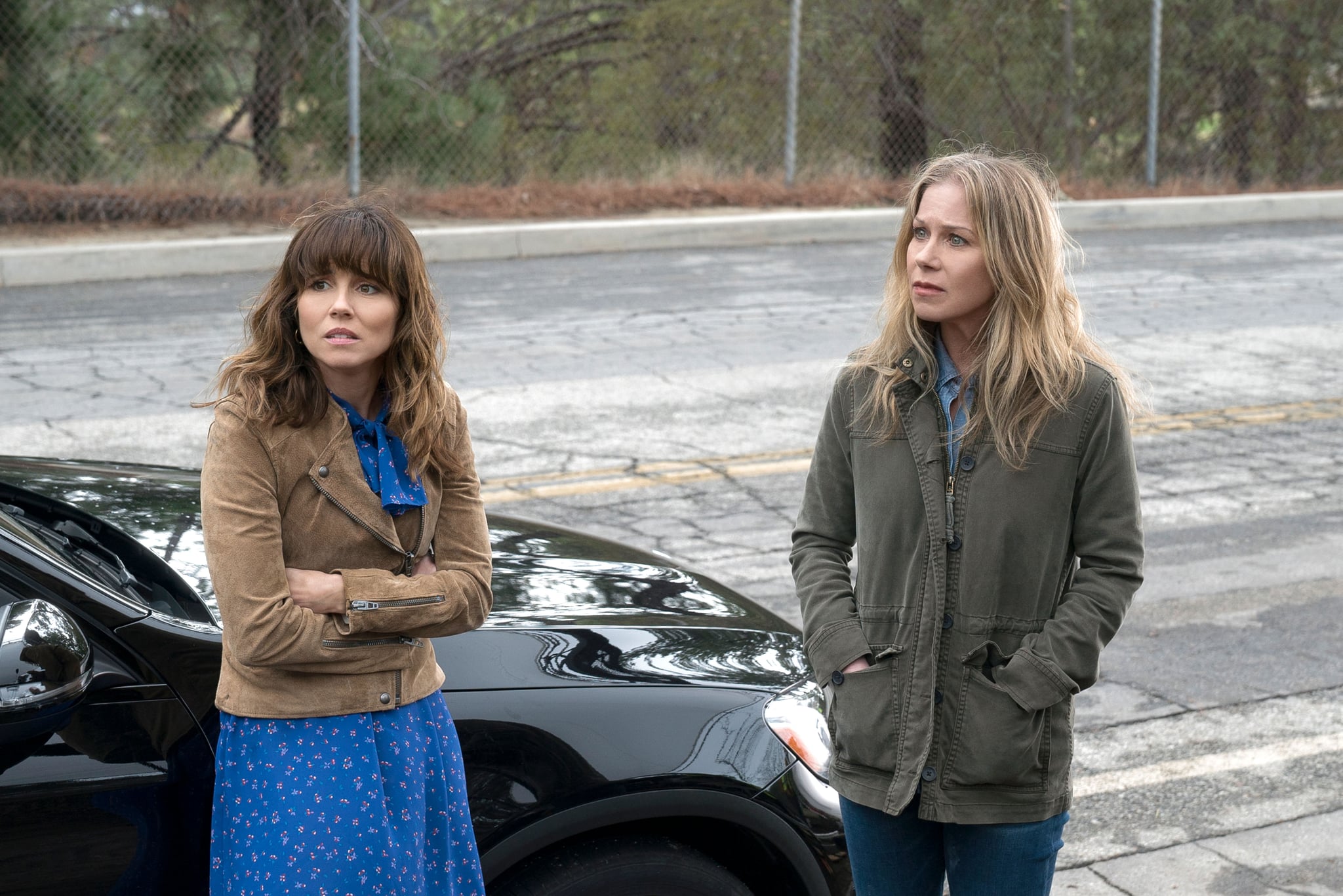
Among the many things I love about how the new Netflix series Dead to Me [1] handles grief is that it tackles the very real and lasting effects of pregnancy loss head on. Viewers learn early in the season that Linda Cardellini's character, Judy Hale, lied about losing her fiancé so she'd fit into a loss support group. We later find out Judy actually suffered five miscarriages, and as she says, the experiences made her feel a little "crazy," which is why she lied. Upon learning the truth, Judy's BFF in grief, Jen (Christina Applegate [2]), whose husband was killed in a hit-and-run accident [3], questions whether Judy has a right to be in the support group. Judy may not have been truthful, but she lost something, too [4].
As a mom who lost a baby late in pregnancy, I believe women who suffer miscarriages deserve the same attention and support as anyone else as they navigate the long, long road of grief. I was totally unprepared for just how intense my own grief would be, and without the help of a therapist and some family and friends, I'm not sure where I'd be. Still, almost two years after my loss [5], I am still grieving in many ways. Here's the thing: grief changes over time. You may feel less sad, and more angry. You may feel more guilty, and less hopeless. It's a journey, one that doesn't end at any particular point. I know I'll carry my grief with me for life. I may not always feel this empty, but I'll always wonder "what if." I'll always wish things could have been different.
I'll also always feel a little "crazy," like Judy. For me, the "crazy" comes out in the form of worry for my other four children. When they are sick, or get hurt, I panic. I can't help but fear the worst, every time. It's a hard way to go through life, since kids will always get sick, or fall off their bike, or worse — there are so many dangers out there for today's kids. Sometimes I think my anxiety over something happening to my kids might just do me in.
Heightened worry is just one aspect of the aftermath of loss that people who haven't experienced something similar can't relate to. Which is why, like Judy on Dead to Me, many of my relationships have changed since our loss. Judy and Steve break up after losing their fifth baby. We are still together, but early on, my husband [6] and I struggled a lot to connect as we grieved because we handled our feelings so differently. I was super emotive and cried almost all the time for months. My husband walled up and kept his emotions inside so he could be strong for the family. I interpreted his stoicism as a lack of feelings and felt completely alone in my grief. With the help of our therapist, we have worked through a lot of our issues, and now better understand one another [7]. But I'd by lying if I said we weren't still working toward our new normal. We love each other, but it's not the same relationship it was before.
Other relationships in my life changed, too. Quite a few well-meaning friends [8] and family said things that I found hurtful after our loss, which made me feel less close to them. For example, when a mom friend told me about my baby [9], "It wasn't meant to be," I had a hard time wanting her in my life. I understood that she was trying to help soothe me and didn't mean to upset me, but I just needed to surround myself with people who better understood what I was feeling. Others didn't reach out at all, and I've never gotten over that. But my therapist assured me it's OK for friendships to change after loss. Sometimes relationships with family members will even shift after a loss like ours [10].
Ultimately, everyone needs to know that pregnancy loss touches every part of your life. And yet, inexplicably, as a society we aren't talking about it. I love how Dead to Me [11] shines a light on pregnancy loss, since as we know, it is far more common than many people believe, affecting up to one in four pregnancies [12]. Most importantly, I applaud the Netflix show for normalizing grief after pregnancy loss. So many of us are walking around with a big hole in our hearts. How can we not be impacted by that every single day? Now that would be truly crazy.